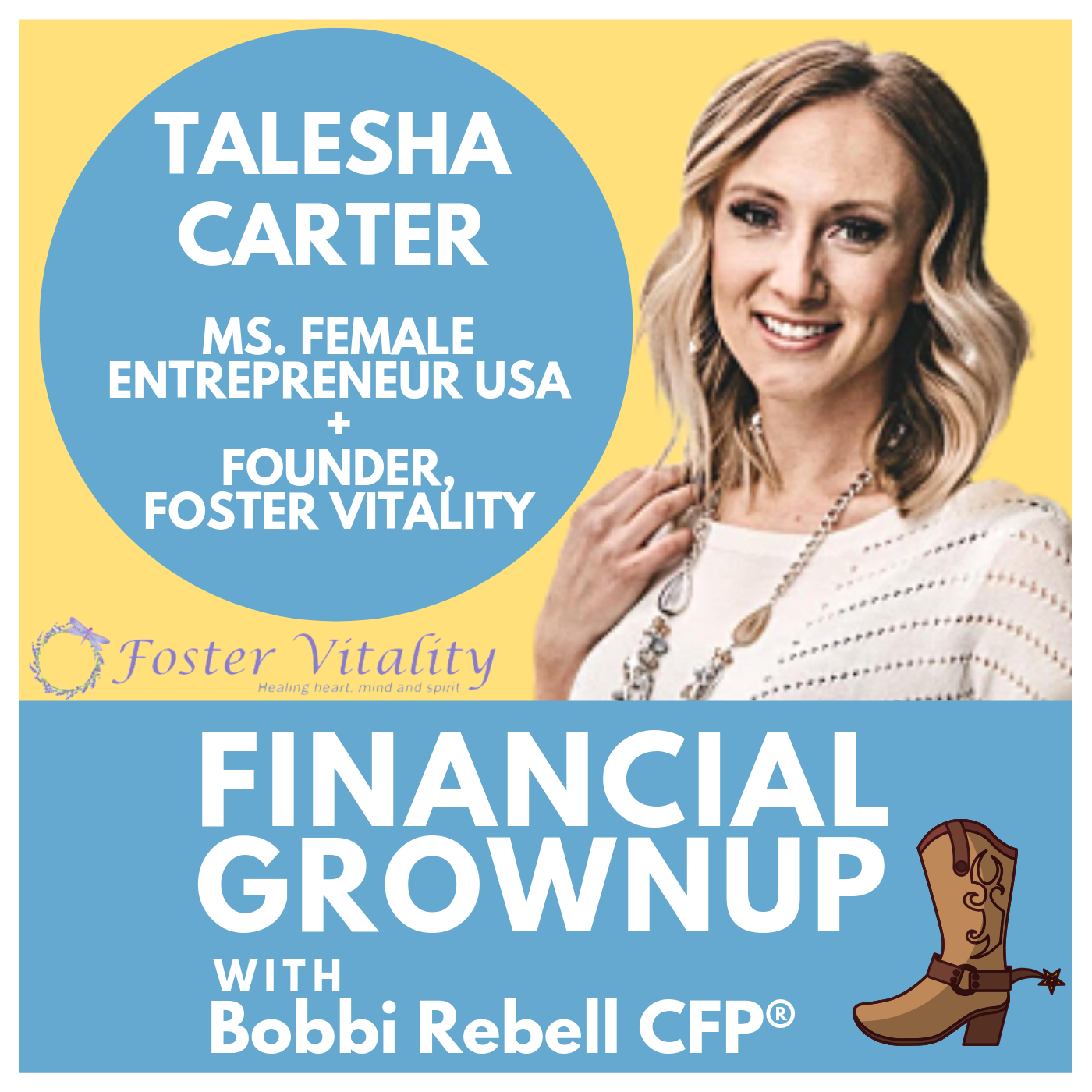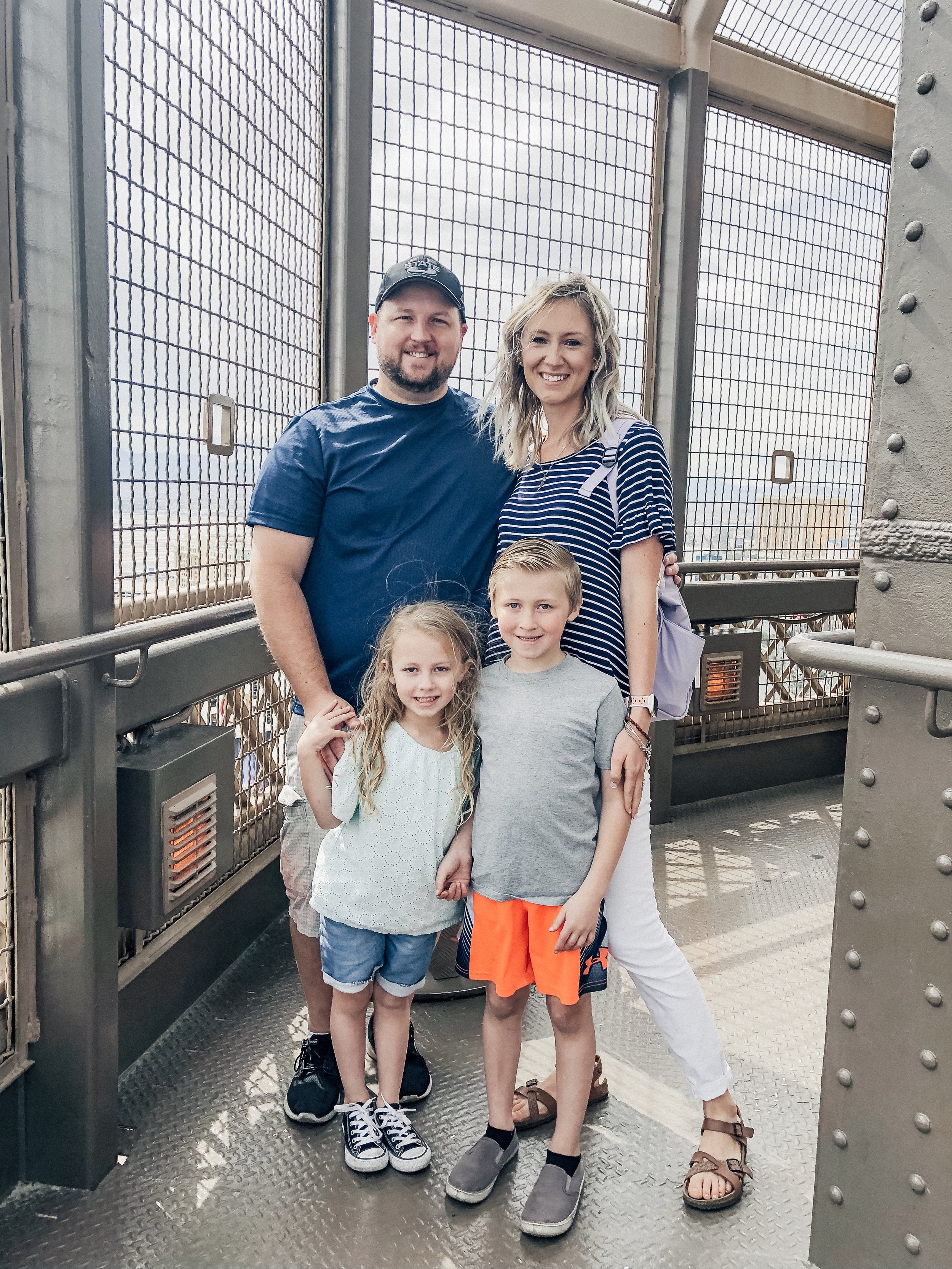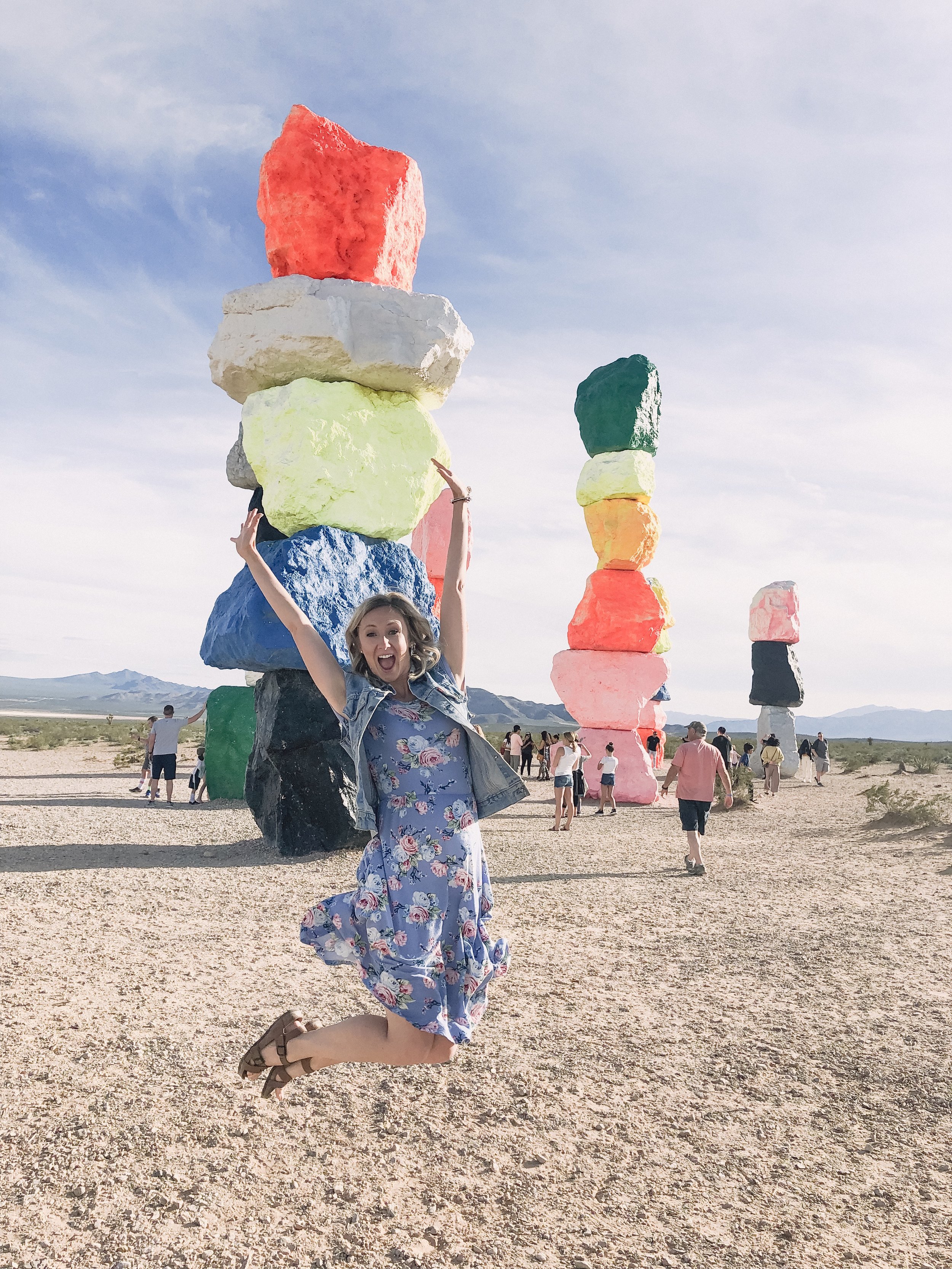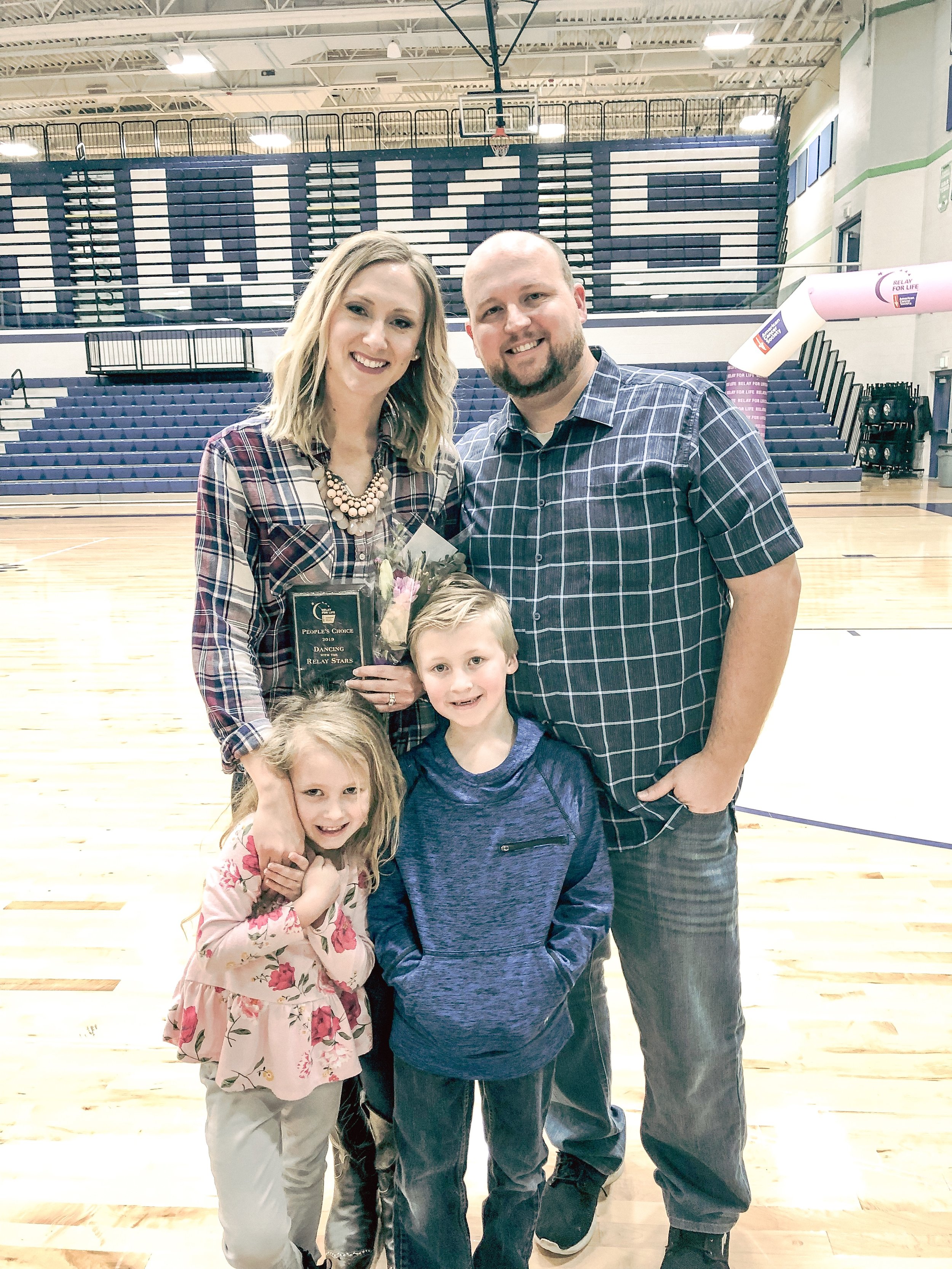Losing your money but finding your purpose with Ms. Entrepreneur 2018 Talesha Carter of Foster Vitality
Talesha Carter lost all the money she had at the rodeo with friends. Fortunately she was only 9 years old. But the money lesson stayed with her and created a money focus that is helping her to serve others.
In Talesha's money story you will learn:
I loved it, yes. I grew up in a small town. Rodeos were a big deal. This particular rodeo was actually down in Salt Lake City area, so about an hour and a half away from where I grew up. This was like the big rigs.
Bobbi Rebell:
The big time.
Talesha Carter:
Yes. It was so much fun. I went there with my friend and her family.
Bobbi Rebell:
And you were how old?
Talesha Carter:
I was nine years old. I was a little wee one.
Bobbi Rebell:
So cool. Okay, so this is sort of a little bit of independence that you're getting, and your parents gave you, really, your first taste of financial independence, and spoiler alert, you failed spectacularly. Tell us exactly what happened. What did they do? They entrusted you. They said, "Okay, you're a big girl, you're nine years old, we're going to give you this responsibility." What happened?
Talesha Carter:
Yes! So they gave me the money. It was $50, and they told me, "Be very careful with this money. Please don't lose it. We're trusting you that you can be responsible with it." Years before they had started to teach me about saving money and spending money, so I had my little buckets and everything, so I had a pretty good concept. I'm the oldest child, so again they entrusted me that I could do well with it. I was so excited that they would let me have my own money, and therefore I got to have my own wallet to keep the fancy-pantsy money in.
Bobbi Rebell:
So you're all organized, you've got your money and your wallet, and what were you going to spend it on? What was this money for?
Talesha Carter:
Yes. Oh, anything I wanted. It could be food, it could be souvenirs, it could be little outings that we were going to do, because we were also going to be going to Lagoon, which is an amusement park here in Utah. So lots of good things that we were going to be able to use with it, and so I was there, and just having so much fun. I was obsessed with the broncos, and just being able to watch the cowboys there and watching the bull riding, all that. I just was so entranced by it, and had a lot of soda beforehand, and about midway through, I was a little kid. You don't have much bladder control.
So I'm like, "Okay, I've got to go to the bathroom." I remember having this distinct memory of, "Oh, I have to take my money with me. I can't just leave my wallet here on the fence." Then the next thought was, "Oh, I'd better take it with me, because my parents said, 'Always keep your money with you. Don't lose your money.'"
Bobbi Rebell:
So you were being financially responsible.
Talesha Carter:
That's what I thought, yes. As a nine year old. So my friend and I, we went and found the bathroom, and I remembered, I didn't want to put it on the gross dirty floor, so I put it on the back of the toilet seat. I went to the bathroom, came out, washed my hands and everything, and I left it there on the toilet seat. Completely forgot that it was even there. Came back to our seats, we were enjoying the rodeo, and then I just had that sinking pit in my stomach of, "Oh my gosh, where is my wallet?" You know, as a grown up woman now, if you've ever left your purse somewhere and you have that moment of panic, that's what I felt as a nine year old, was that moment of, "Oh my gosh, I've got to go get my money. Where is my money? Where did I leave this money?"
And so we quickly went back to the bathroom, and of course, we went into every single stall, and nothing was there and no one had turned it in.
Bobbi Rebell:
Aw. You went to the lost and found?
Talesha Carter:
Yes. Yes, we did everything to try and find it, and you know, hopefully someone else enjoyed that $50.
Bobbi Rebell:
It's disappointing that somebody did not turn that in to lost and found. I mean, did you have your name on it, anything? As a nine year old, we tend to put name tags on our kids' stuff.
Talesha Carter:
Yes. Yes. You know, I'm sure I probably did, but I don't remember how that was. But I think one of the most disappointing things was that people could be dishonest. And that was a real big gut punch.
Bobbi Rebell:
Right, because you left it there, and I get it. That's irresponsible.
Talesha Carter:
Yes.
Bobbi Rebell:
It's a lesson when you're nine, but somebody also took it! And that's also a lesson, that if you don't pay attention to your money, someone might take it.
Talesha Carter:
Yes. So then from there I had to have that hard conversation and call my mom and dad, and tell them, "Hey, I'm really sorry, but I lost your money." I could hear their disappointment through the phone, but my parents are so amazing and incredible, and they just walked me through it. They said they were disappointed, but that they loved me and it was okay, and we could make that money back, and it wasn't earth-shattering, but I think for me the biggest thing is that nine year old was feeling that guilt that I had lost my parents' hard earned money, and then as well, feeling upset that someone would take it, and then me feeling like, "Oh my gosh, now I'm always going to lose my money."
So especially when I started my own business, that was where I started to see it come through a lot. I've always loved money, but that belief of, "Oh, I'm going to lose this money." So then I got really, I would hold onto it, and I almost created this scarcity mindset with money of, "If I don't keep it with me, or if I'm not tracking it 100% through my bank account, it's going to lose money," or some hacker is going to come on and take it.
So it made me almost shift into that scarcity greedy side of money, instead of just money flows to me easily, side of things.
Bobbi Rebell:
Right. And negativity about money, that money is not something that can empower you, it's something that you have to kind of hoard and protect and keep because someone else might take it from you. And that can really weigh on you.
Talesha Carter:
Yeah. It was a huge, that was probably one of the biggest lessons in that, is that I had to be able to let go of that fear that money was against me instead of for me.
“I had to be able to let go of that fear that money was against me instead of for me”
In Talesha’s money lesson you will learn:
Yeah, so I had to really learn how to identify my money beliefs. One of the ways I like to do that, and what I teach my coaching clients, is to start to look at the money that they have right now, and ask themselves, how do they feel about it? Are you happy? Are you sad? Does this overwhelm you? Does it stress you out?
And then from there, write letters to your money. Identify what your money is trying to tell you.
Bobbi Rebell:
Do you actually write letters to your money?
Talesha Carter:
I do. I do, yes.
Bobbi Rebell:
What do you say in your letters to your money?
Talesha Carter:
When I was first starting out, it was, "Why do you always leave? Why is there never enough? Why do I feel like any time I make money, it just quickly leaves?" The bills, whatever it is that you have. And so it first started out very negatively, like, "I don't like you. Why do you always leave me?"
Then it has slowly shifted into, "You're pretty awesome. Thank you so much for showing up in my life. This is really cool that I made $100 today by helping out a person, and now I'm going to turn around and utilize this to help my family or another family." Just writing like I would write to my best friend.
“ I had to learn how to identify my money beliefs”
In Talesha's everyday money tip you will learn:
Talesha Carter:
A lot of times we do things electronically, and so I like to cash my money, and put it into cash. And then I carry $100 worth of cash with me, and it's in the range from $2 bills all the way up to $100 bills. From there, I look at it every single day, and I'll say, "Thank you for showing up in my life. How can I help serve another person with this money?"
Bobbi Rebell:
So gratitude.
Talesha Carter:
Yes. So much gratitude.
“People could be dishonest and that was a real gut punch”
Financial grownup tip number one:
Look out for your friends' money and possessions. It would be obvious for me to say, "Keep tabs on your own stuff when you are out and about." That goes without saying. But I'm going to share a story, and I still feel sick to my stomach about it.
I was in London with a friend in college, we were at a restaurant. She went to the ladies' room, and I did not realize it, but she had left her bag somewhere. Maybe it was on the floor, the back of the chair, I wasn't really paying attention.
She hadn't said anything, but I was at the table, and her bag was somewhere. The thing is, I wasn't paying attention. And when she returned, she didn't notice anything either. But when we went to pay the bill, we noticed the bag had disappeared.
I still feel bad. Someone obviously came by and swiped it while she was away, or maybe it was when we were just talking, who knows? The point is, we weren't paying attention. We need to have each others' backs.
Financial grownup tip number two:
You probably won't get a do-over, so come up with a do-next. What are you going to do next time, after something goes wrong.
I want you guys to give it some thought, and when you have time, please DM me and let me know how you have come back from doing something cringe worthy with your money, like leaving your wallet in the bathroom. Because as I said at the top of the show, we all have those moments that we wish we could get a do-over on.
Heads up, everyone. Financial grownups pay attention to the news and learn from it. Here is your shortcut.
Episode/Other Links:
Talesha's 1-on-1 coaching
Talesha's Facebook Group- Foster Vitality: Energy Connection
Check out Talesha's website -
www.FosterVitality.com
Follow Talesha!
Instagram - @FosterVitality
Facebook - @FosterVitality
YouTube
Some of the links in this post are affiliate links. This means if you click on the link and purchase the item, I will receive an affiliate commission at no extra cost to you. All opinions remain my own.




